A public cloud is simply where a cloud service is open to the general public. Anyone is able to access it. Some require you to purchase it and some allow you to access it for free. An example of this is Google App Engine. With it, you are able to host a website. Hosting means the actual files and code rest there. They do the work when it comes to making sure it stays online.
A public cloud is based on the concept of being able to deliver services over the internet. The benefit to this is that it allows companies, organizations, and individuals the ability to access resources without the need to have infrastructure. This is similar to gyms. Not everyone has the room to have their own gym. However, if you get a bunch of people together and pool their resources, they have the ability to have a gym fully stocked with all the needed equipment. Everyone is able to use the resources there without having the need to buy it all. The same thing is true with information systems. Databases, servers, and even phone services can all be hosted virtually.
Differences between public cloud, private cloud and hybrid cloud
There are three main types of clouds: public, private, and hybrid. A private cloud is one owned and operated by an organization that doesn’t allow the public to access it. An example of this would be if Boeing had a cloud where all their branches could access inventory databases. They would build and maintain it all in house. They may want this in order to ensure security and privacy. Boeing is a large company where they have information that needs to be kept secret. This setup would allow them to keep it secret.
A hybrid cloud is a mixture of public and private. Imagine that you have a large computing task that needs to be processed. Say this process is simulating and forecasting weather events on Mars in order to successfully land a rover. In order to share processing load, information may be processed in different clouds. This allows clouds to process information that they might be better suited for. The private cloud hosted by NASA might be better suited for collecting and processing patterns in the Martian atmosphere. At the same time, a public cloud hosted by MIT might be processing information on trajectories and landing protocols. By distributing the load, you would be better able to process the information without overloading one single system or cloud.
Advantages of Public Cloud
The benefit to using public clouds is that it allows you to access resources that you couldn’t afford before. For example, a web developer creates a website for a business. He/or she has to place the website somewhere for others to go to. This means they have to place the website on a web server. Most web developers do not have someplace in their office or house where they maintain a webserver with a good internet connection. Instead, they place the website on a web server maintained elsewhere. Most than likely, this is a company that has a large room with racks of servers they maintain. They lease that space out to the developer for them to host that site. Cloud computing is similar. The major difference is that the webserver is a virtual server hosted on much larger computers.
Purchasing services from a public cloud would be useful in cases where resources are limited. For example, a freelance programmer, designer, or web developer may want to use public clouds. In most cases, they don’t have the room to house many servers. Pricing can vary but will either be two things, flat monthly fee or based off usage. In the case of Google App Engine, it’s based off unit costs or how many Gigabytes are used.
Disadvantages of Public Cloud
The disadvantages of public clouds can be service and response times. Let’s say the website you are having hosted on Google Apps Engine goes down. You now have to fill out a ticket and wait for them to respond. This could take hours or even days. The problem could even be escalated and passed from person to person. However, this is also an advantage. While response times can be long, you still have access to the technical support. So, if something happens and fixing it is beyond the available skill level, the technical support is there.
When to use a Public Cloud
Unless you are part of a business that houses their own cloud, you will be using public clouds. Hybrid clouds are more used in cases where there is a very large project with several interested groups involved. Universities and corporations may use them for research and development. Resources are pooled together to get the job done. In most cases, any cloud that the normal person will run across will be a public cloud.
Public Cloud alternatives
The alternative to a public cloud is building and maintaining your own server. The benefit to this would be you have more freedom to do as you please. However, the work, resources, and technical knowledge needed may be too much. Another disadvantage is licenses and keys. If you plan on using Windows, this can cost a few hundred dollars. You can use open source software. This is free but comes with more setup and time. Either way, the solution will vary depending on the resources and needs. Both ways, public clouds continue to grow and may one day become a utility similar to water and electric.
CENTURYLINK
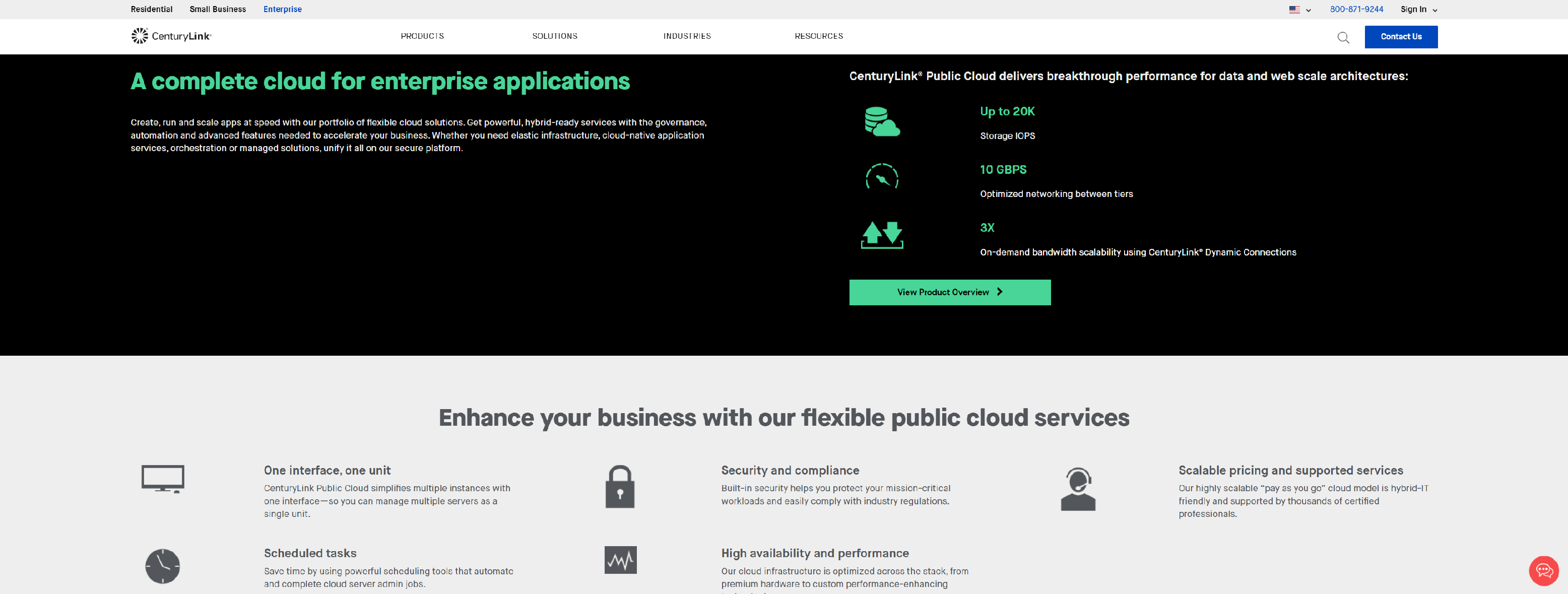
CenturyLink’s public cloud service is a complete platform for enterprise applications. Our servers are ready for the complexities of global IT operations.
- Get usage-spike notifications
- Create a set point
- Easily perform power operations
- Automate patch management
- Define your OS templates
FORTINET
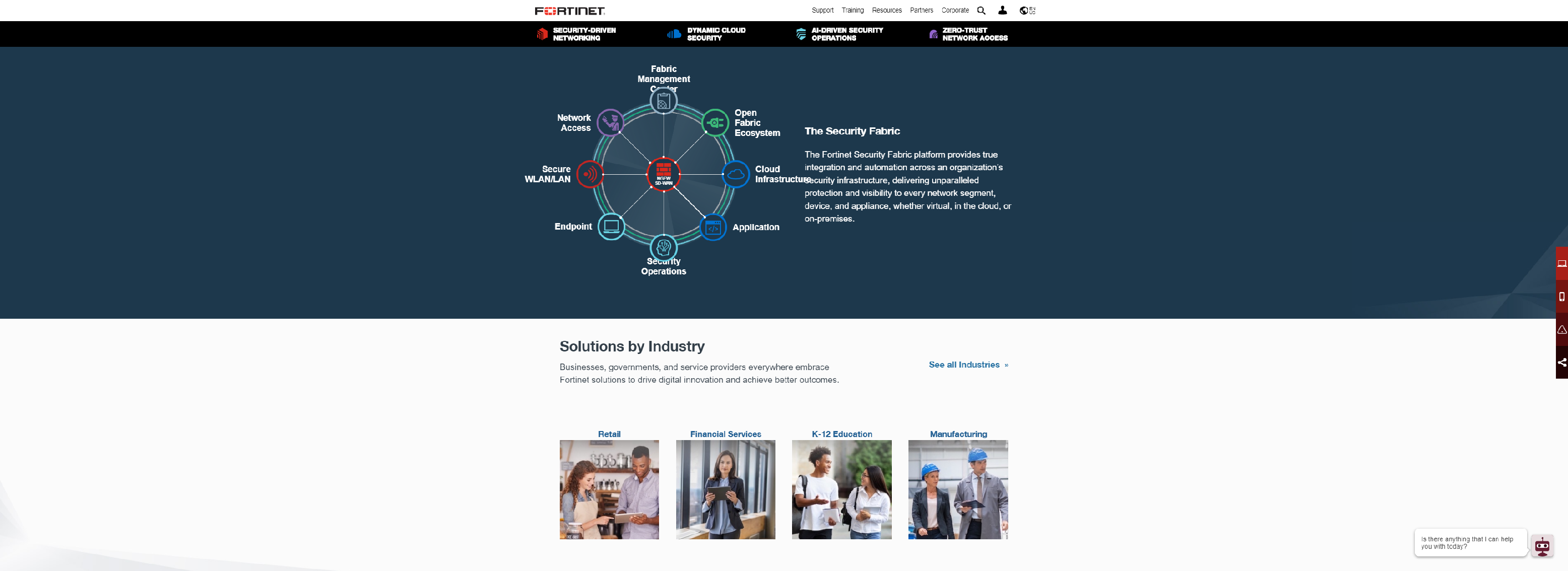
Fortinet delivers network security solutions for global businesses to achieve a security-driven network and protection from sophisticated threats.
- Streamlined and automated management
- Consistent security across public and private cloud applications
- Multi-layer advanced application protection
- Flexible pay as you go billing and licensing
- Scalable and resilient protection for elastic workloads
- Support leading IaaS Provders
VERITIS
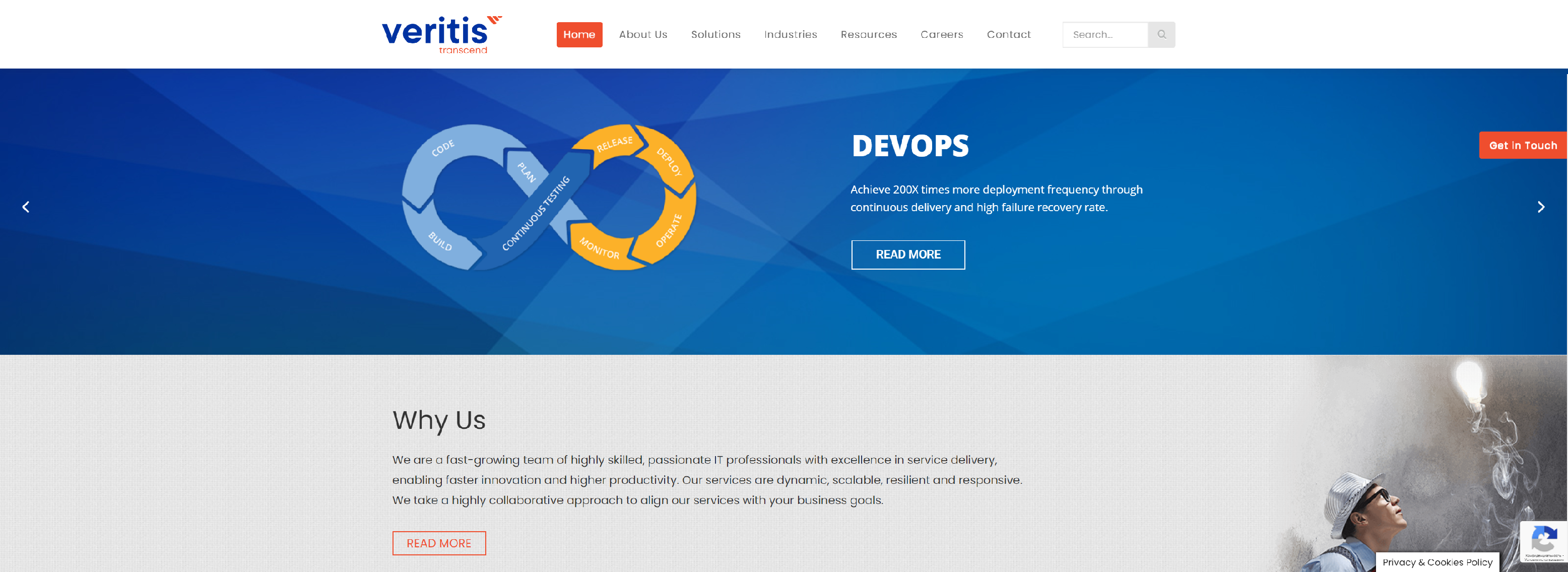
Veritis delivers integrated, reliable and cost-effective technology solutions – Cloud, DevOps, Digital Transformation, IT Infra, Technology Advisory & more!
- Web pages and CMS Systems
- Disaster Recovery
- Media streaming apps
- Web and mobile apps
- Network appliances
- Web servers/app servers
- Batch processing apps
- Enterprise apps
- Small databases or large relational databases
- Test and dev environments
CLOUD.GOOGLE
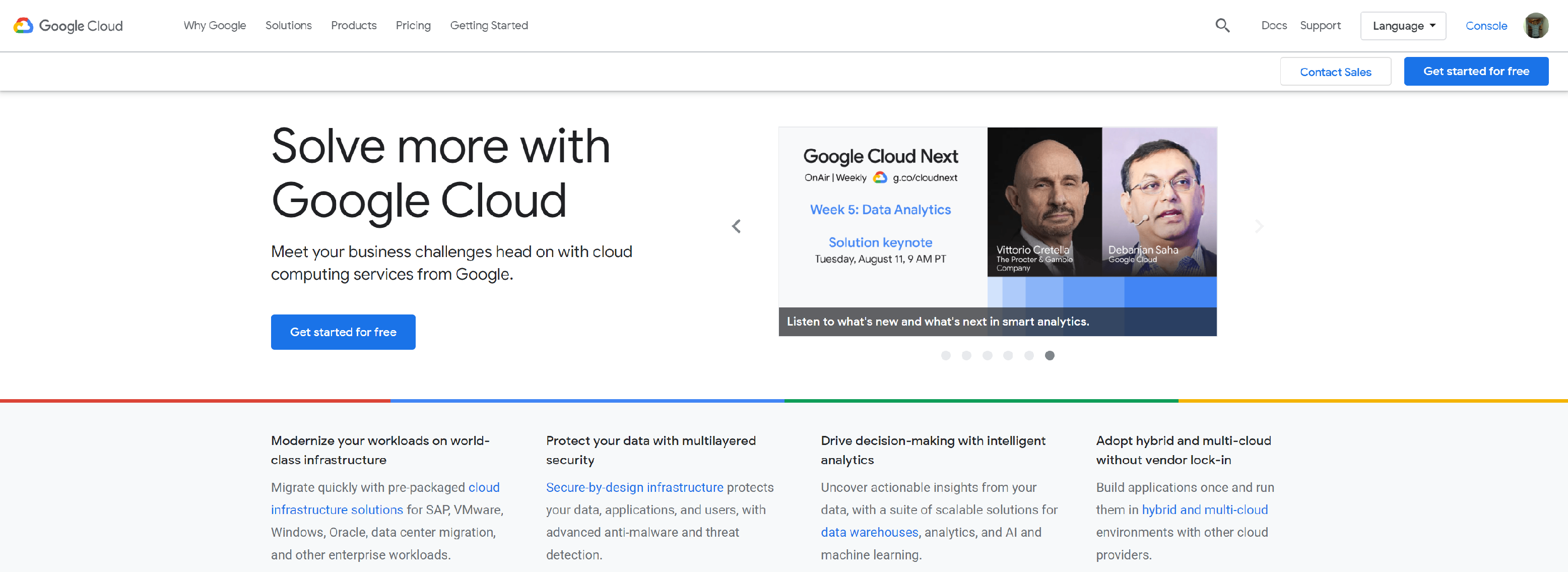
Meet your business challenges head on with cloud computing services from Google, including data management, hybrid & multi-cloud, and AI & ML.
- Modernize your workloads on world-class infrastructure
- Protect your data with multilayered security
- Drive decision-making with intelligent analytics
- Adopt hybrid and multi-cloud without vendor lock-in
CDILLC
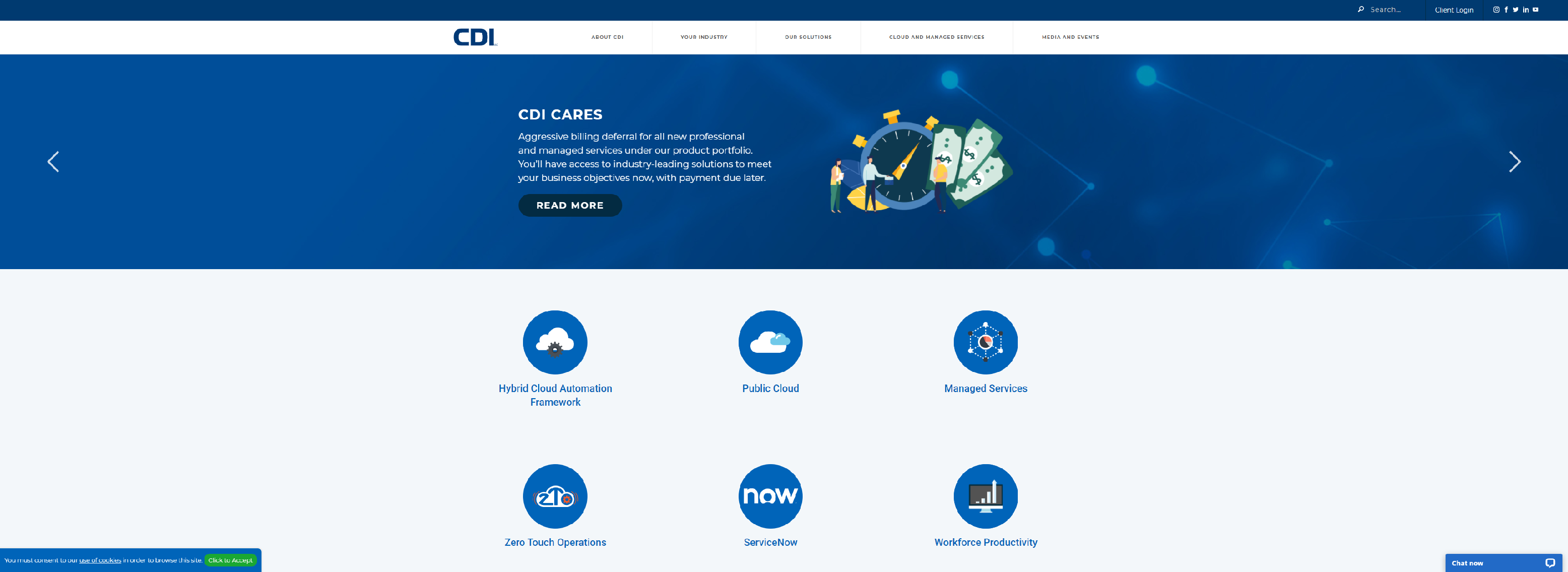
CDI architects, deploys and manages hybrid IT solutions, including traditional IT, public, private and hybrid clouds. Providing custom-tailored technical solutions for financial services, healthcare, legal, life sciences, media, entertainment services, public sector and more.
- Security and Identity
- Continuous Total Compliance
- Capacity and Resource Optimization
- Cost Transparency and Optimization
- Strategy and Review Sessions
- Design/Deploy
TIVIT
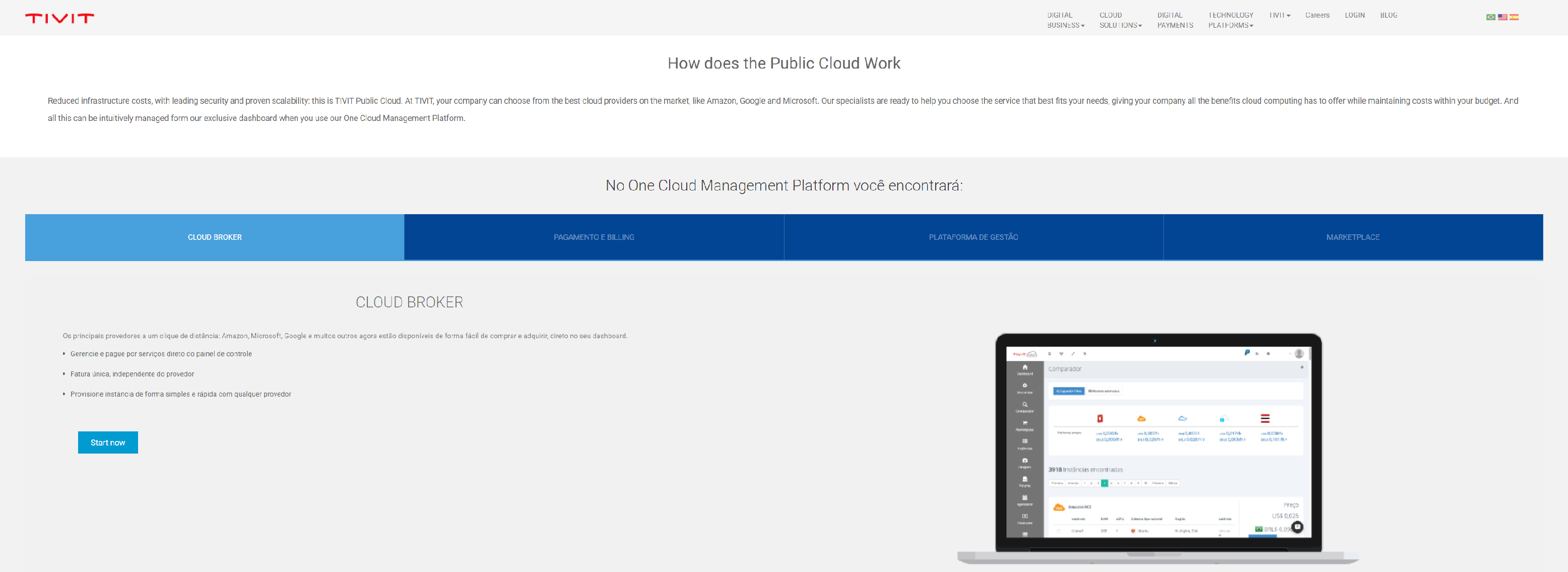
The Brazilian technology multinational most capable of helping Latin American companies in the digital transformation process.
- Industry-leading cloud services in Latin America
- We offer the best of public and private clouds, combined
- Certified professional offer all-around support in cloud services
- Solid partner network
IBM
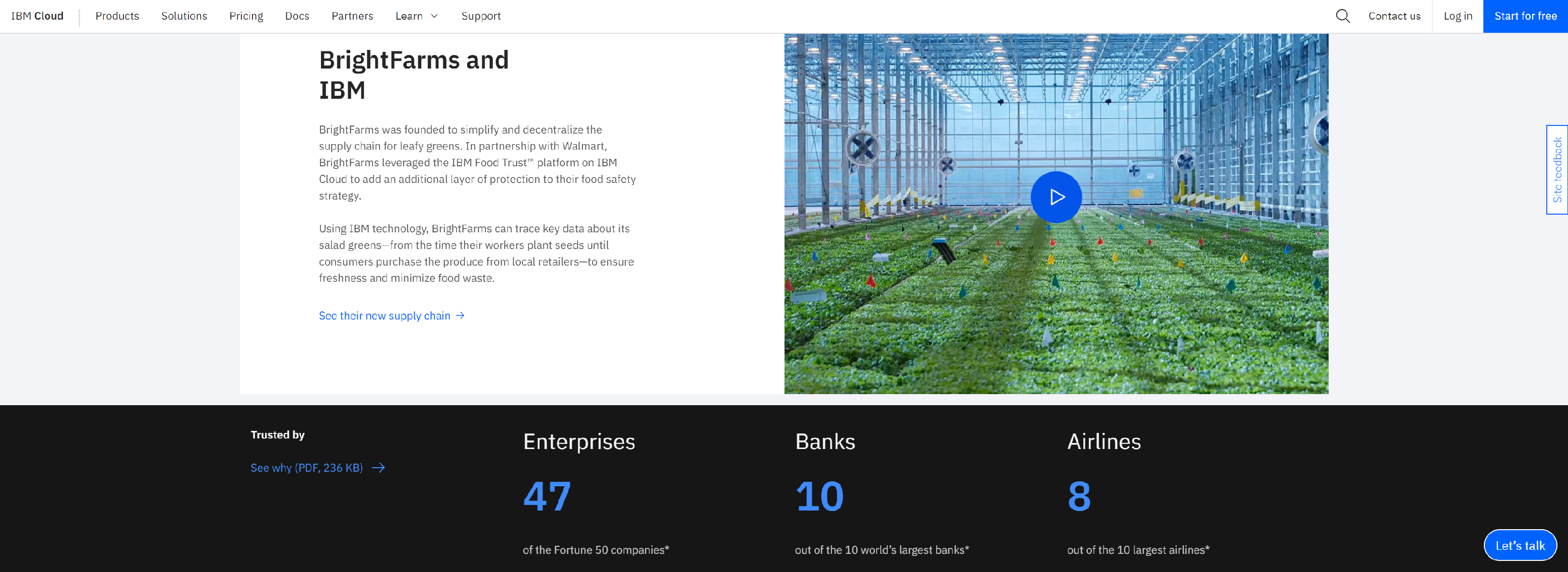
The most open and secure public cloud for business with investments in open innovation, security and enterprise workloads.
- Leverage open-source technologies
- Market-leading protection for data and apps
- A foundation for enterprise workloads
STRATACORE
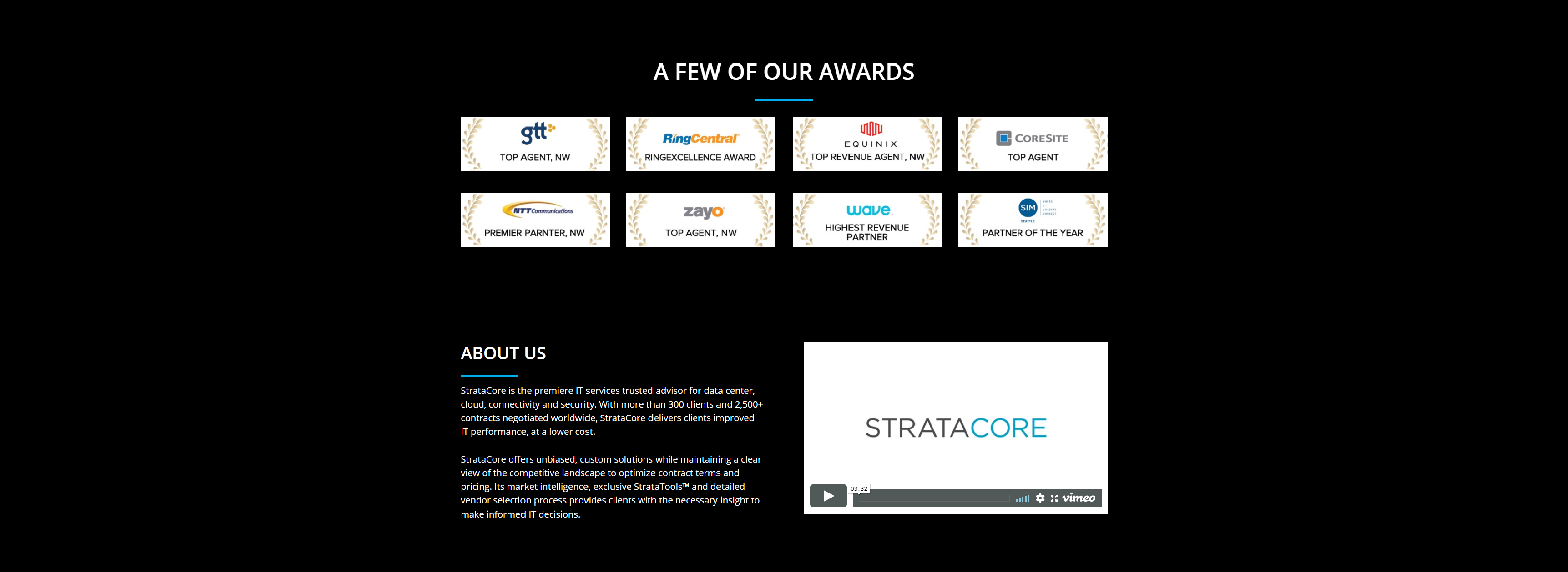
StrataCore helps enterprise companies assess complex IT infrastructure systems for cost containment, performance and reliability.
- Ultimate scalability
- Cost effective
- Utility style payment model
- Reliability
- Flexibility
- Location independence
CLOUD.CROC
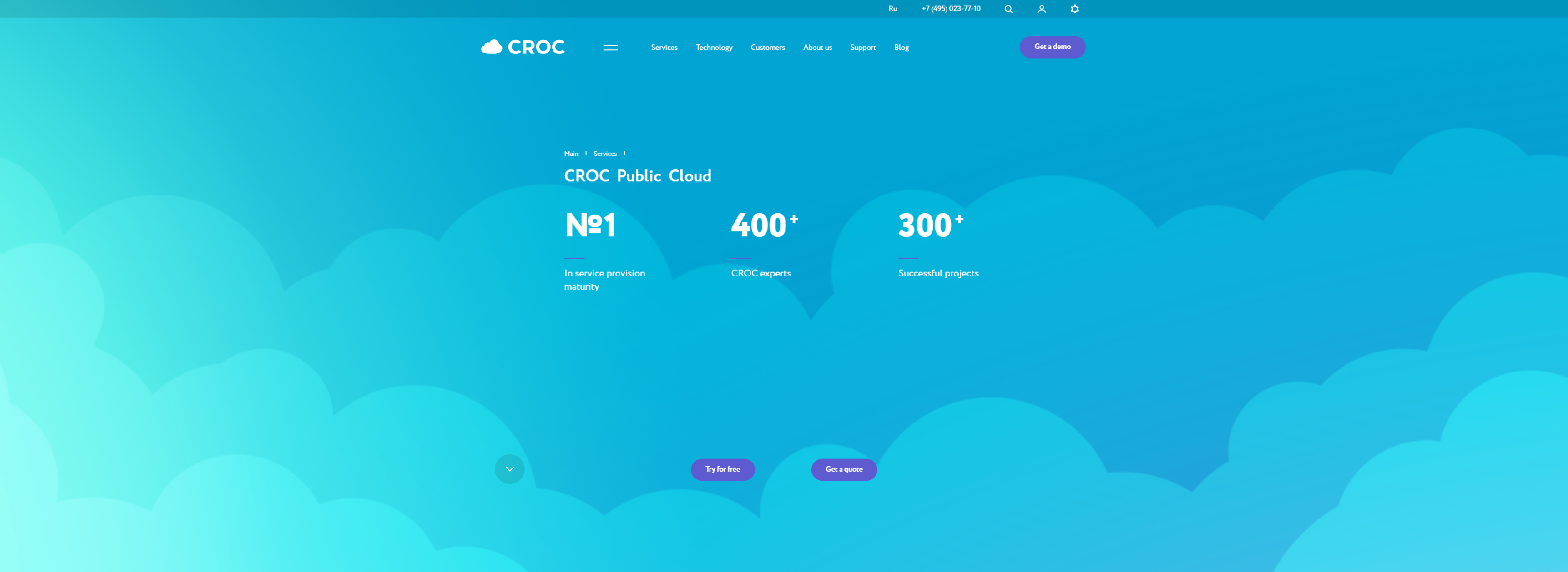
CROK Cloud services – N1 in terms of maturity among IaaS providers (TAdviser 2018). Access to resources in 10 minutes. Up to 100,000 IOPS. SLA 99.95%, 24/7 support.
- Excellent performance
- Flexibility
- Convenience
- True disaster recovery
BARRACUDA
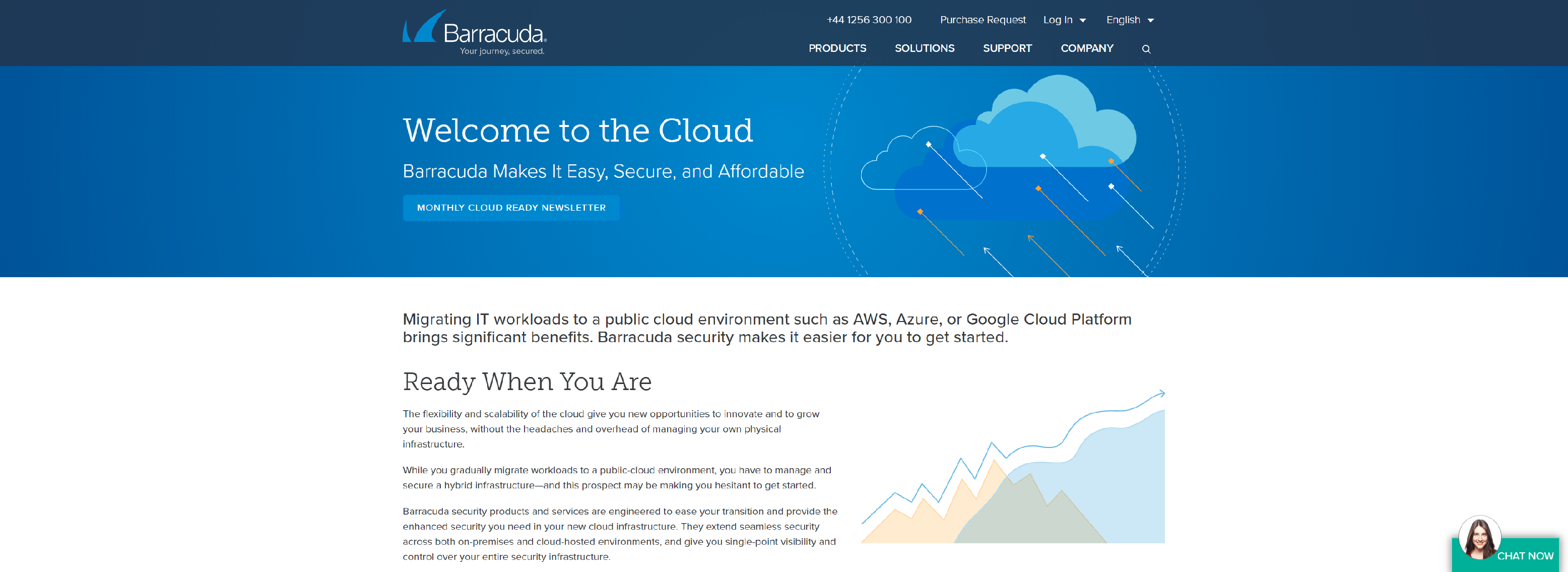
Barracuda security products take much of the risk and complexity out of public cloud migrations including AWS, Azure, Google Cloud Platform and hybrid environments.
- Barracuda CloudGen Firewalls are the #1 cloud-generation firewalls on Microsoft Azure
- Barracuda Web Application Firewall is the #1 WAF on Amazon Web Services (AWS)
- Barracuda CloudGen Firewalls are the first cloud-generation firewalls available on Google Cloud Platform (GCP)
SOPHOS
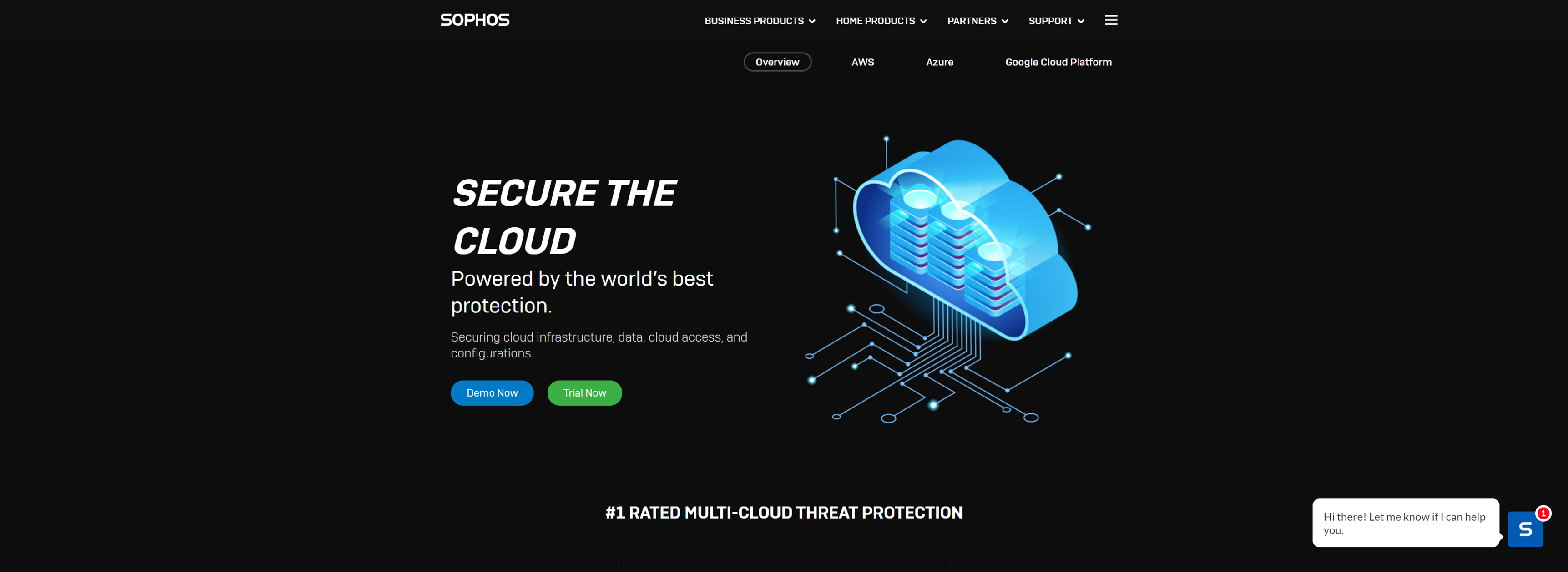
Security for AWS, Azure and GCP – Powered by the World’s Best Protection. Take Sophos Cloud Security Solutions for a Test Drive Today.
- Avoid Blind Spots in Cloud Access
- Protect Cloud Data and Shared Storage
- Identify Cloud Spend Increases
- Connect Remote Workers Securely
F5
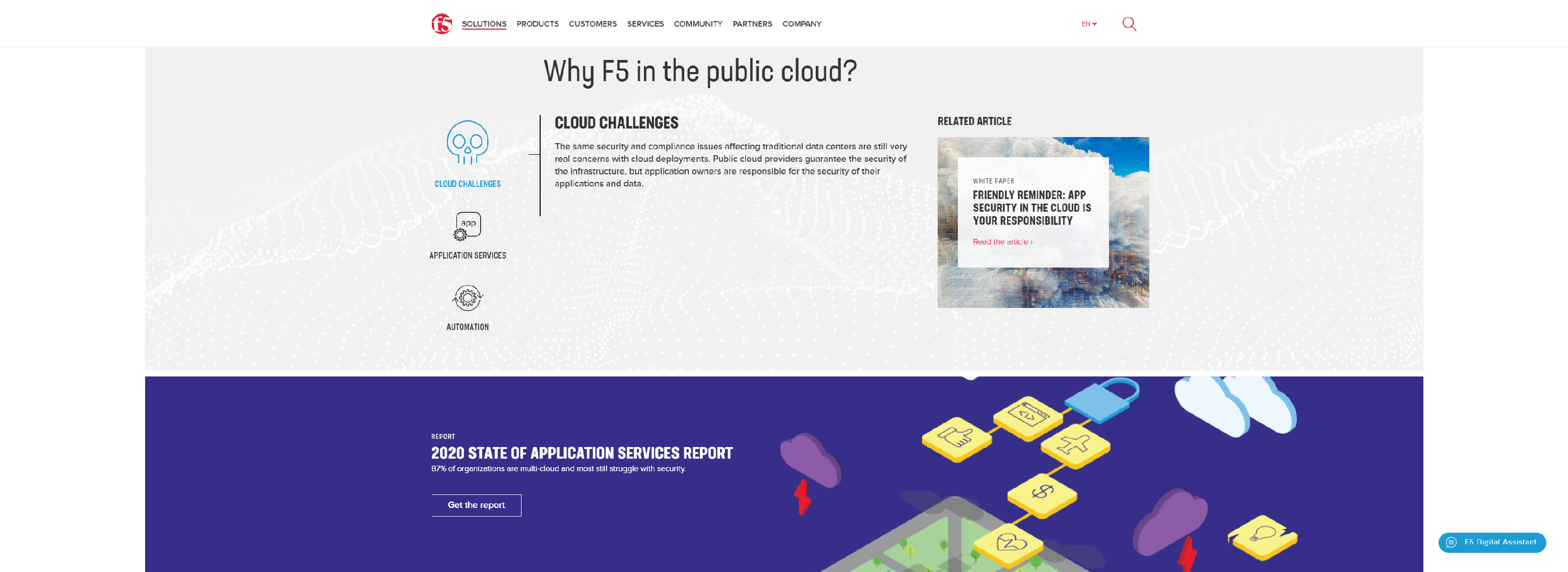
F5 application services ensure that applications are always secure and perform the way they should in any environment and on any device.
- BIG-IP Local Traffic Manager (LTM)
- Access Policy Manager
- Advanced WAF
- BIG-IP DNS
- BIG-IP Advanced Firewall Manager (AFM)
- BIG-IQ Centralized Management
EQUINIX
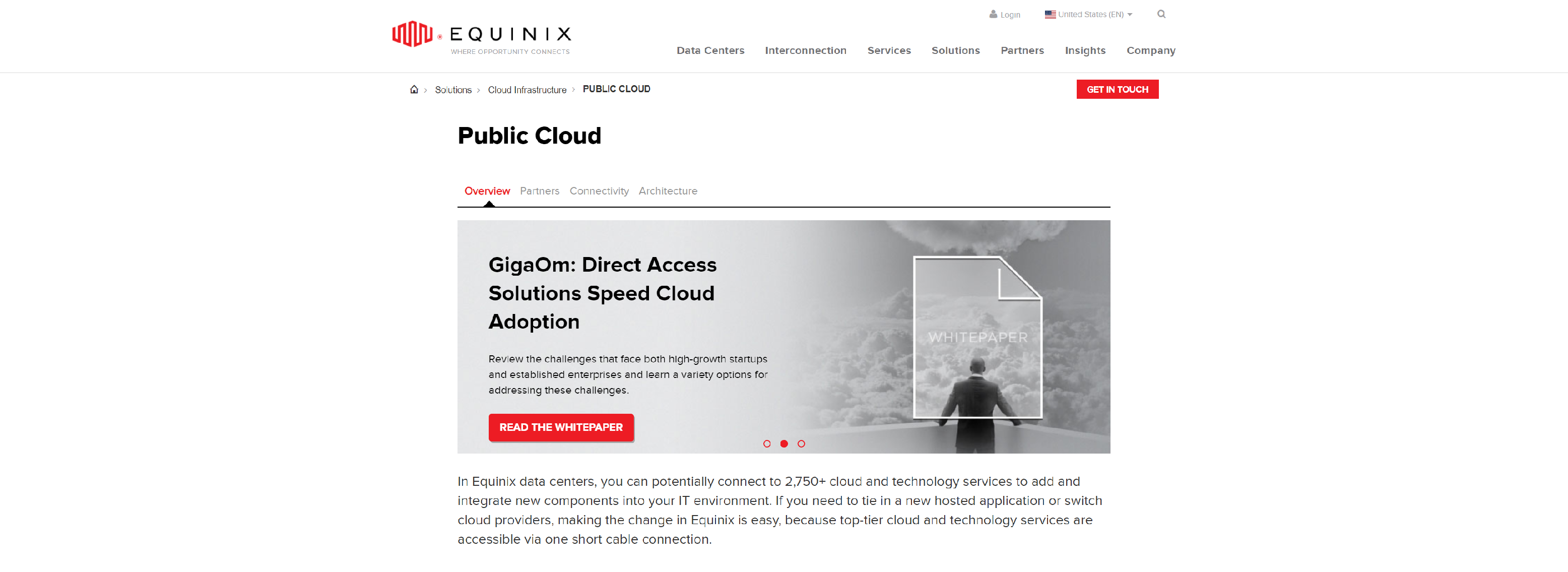
Equinix is the world’s largest data center & colocation provider, enabling fastest application performance, lowest latency and a digital ecosystem for financial, CDM, enterprise and cloud networks.
- Direct connections to AWS, Google Cloud Platform, Microsoft Azure and Oracle Cloud
- Enhanced IT agility by accessing and interconnecting to the data center industry’s largest collection of cloud and IT service providers: 2,750+ reside in Equinix facilities
- Unmatched choice in network services to accelerate data delivery and cut 20% or more on WAN costs
- 180+ data centers on 5 continents to meet your colocation and connectivity needs
- The data center industry’s most advanced and broadly deployed cloud interconnection platform: Equinix Cloud Exchange
CHECKPOINT
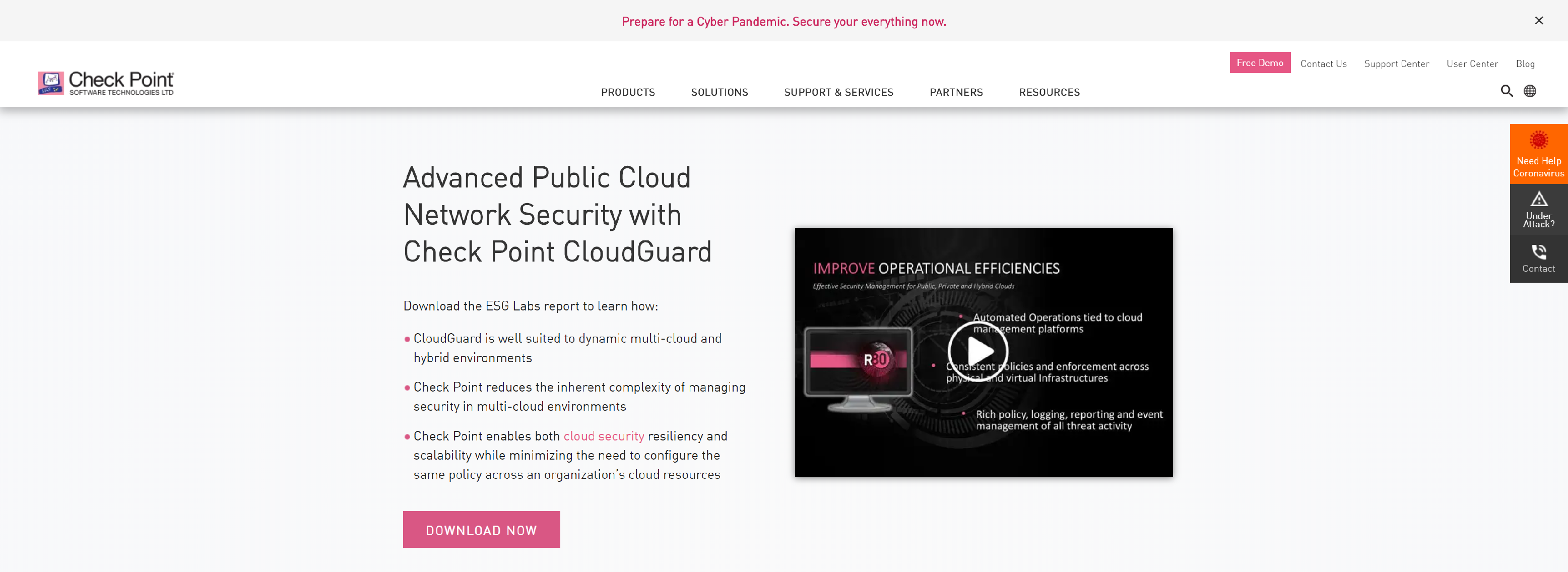
Check Point Infinity architecture delivers consolidated Gen V cyber security across networks, cloud, and mobile environments.
- Advanced Threat Prevention Security
- Rapid Deployment
- Centralized Management across Cloud and On-Premise
- Infrastructures
- Dynamic and Automated Policy
- Consolidated Logs and Reporting for Hybrid Cloud Environments